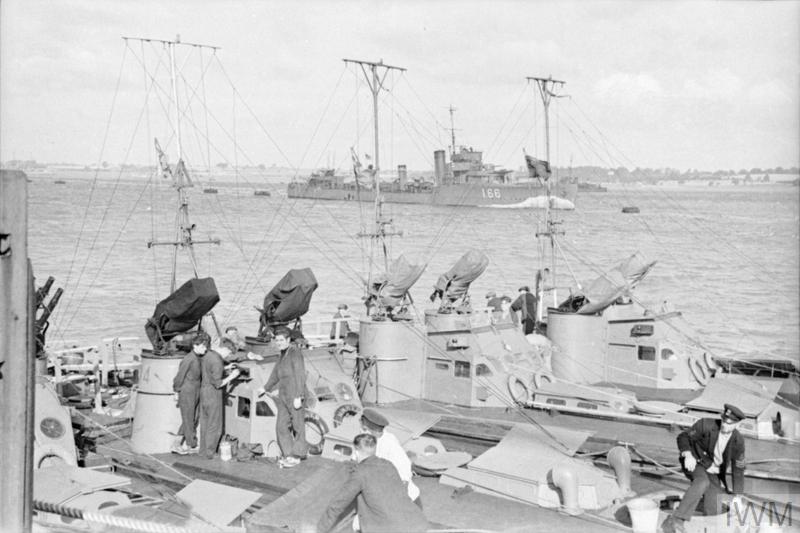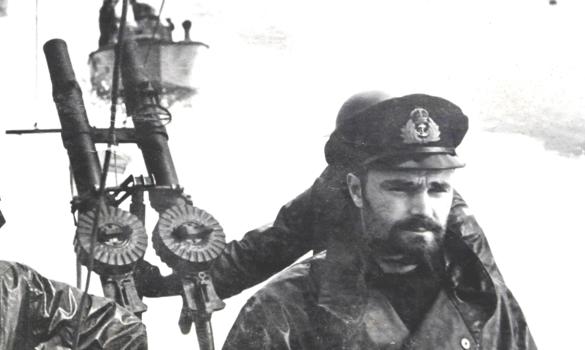
 After we had operated from Harwich for a bit and shaken ourselves down
into an efficient fighting unit, it was decided to combine all the
small Hunt class destroyers to form the Harwich Force and concentrate
the bigger V&Ws at Rosyth to escort East coast convoys.
After we had operated from Harwich for a bit and shaken ourselves down
into an efficient fighting unit, it was decided to combine all the
small Hunt class destroyers to form the Harwich Force and concentrate
the bigger V&Ws at Rosyth to escort East coast convoys. | "You are straggling my Pugdog” the young escort said, The merchantman close by his side ”And you passed twenty-one buoy some five miles to port. "Why don't you allow for the tide?" "In my youth said the ancient, we didn't have buoys But we got to the Thames just the same And the tide in six hours will be sweeping me back, This police persecution's a shame". You are straggling my Pugdog the young Escort said, In fact, you are ten miles behind, You are making us late for our rendezvous time Don't you think you are being rather unkind?" "I am doing my utmost" the ancient replied And I don't care when we pass Tyne, I'm doing six knots and the convoy's speed is six, Tell the Commodore not to go nine." "You are straggling my Pugdog," the young Escort said Trying bravely to still be polite, ”And in spite of my signals by R/T and lamp You are still showing a very bright light". Said the ancient "I've shown it for forty-five years, And, although I'm not saying it's right It's been that way now during nine years of war, What the hell is the difference tonight?" "You are romping my Pugdog" the young Escort said As the merchantman shot down the deep, "After straggling like that you have 48 hours. Your behaviour is really too steep". Not a word said the ancient. Hull down in smoke, He was lost out of sight far ahead. But a senile old chuckle came back on the wind, It was all that the old-timer said. |